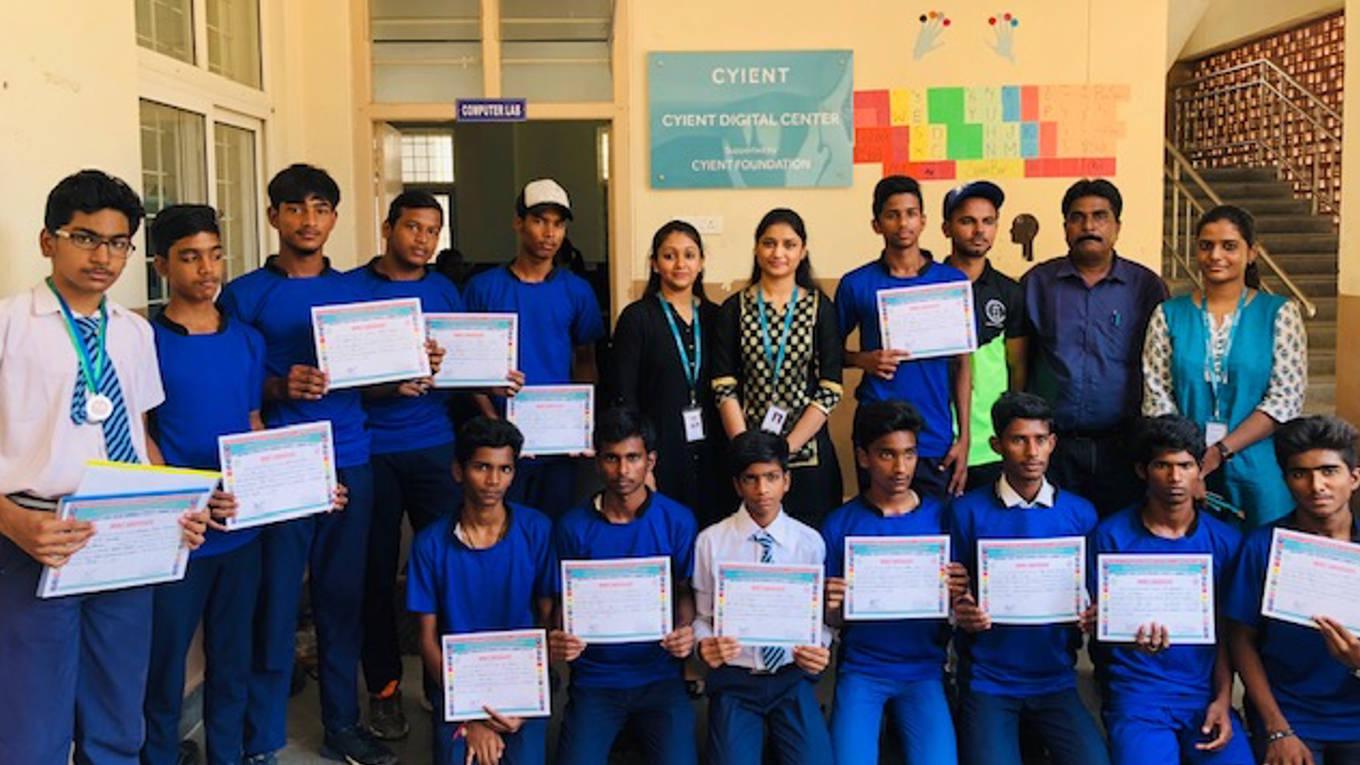-

Children at adopted schools have their own digital literacy centre
Cyient Digital Centers (CDCs) use the transformative power of technology to improve the quality of lives in the societies in which it lives and works. “Our corporate social responsibility (CSR) initiative is shaped by this thinking and driven by the belief that a responsible organisation must focus as much on its impact on society as creating business value,” says the Hyderabad-headquartered founder and executive chairman B.V.R. Mohan Reddy. With its CSR initiatives - from education and health to social innovation and community development - determined by the long-term and sustainable effect any intervention is likely to have, the impact tends to have a multiplier effect across several integrated touchpoints. These initiatives are, therefore, centred on community empowerment and all-round development of the societies in which it exists and works. Working to enhance the quality of education from the pre-primary level till high school for underprivileged children, the Cyient Foundation has adopted 28 government schools around its facilities in four Indian states, where it has created digital classrooms, libraries and laboratories. These schools provide quality education to nearly 19,000 children in 2019-20 and over 100,000 over the last 10 years.
-
These centres have certified around 17,000 adults - men and women aged between 16 and 60 years
According to the Foundation’s social investment and returns impact assessment conducted by the Girls Advocacy and Digital Empowerment Foundation, girl child enrolment at these adopted schools is 55 per cent and girl child literacy is 86 per cent in the communities around them.
The CDCs, set up at its adopted schools, can be accessed by community members to acquire digital skills. These centres have certified around 17,000 adults - men and women aged between 16 and 60 years - of whom almost 10,000 are women, says Krishna Bodanapu, CEO and MD. The Foundation’s scorecard in providing education, digital literacy, and skill development is something the company is proud of, and one it hopes to best year on year, Bodanapu says.
Besides education, Cyient’s social investment in providing quality healthcare to rural communities has led to screened over 1,000 patients using cardiac equipment, and saved 30 lives from potential heart attacks. The Foundation plays a catalyst role between the government and the schemes, using this public-private partnership to ensure maximum utilisation of available resources for welfare activities and the seamless execution of schemes.
It adopted Mokshagundam Gram Panchayat and built toilets in all the schools within the entire Mandal. This has given more than 10,000 girls access to clean sanitation facilities in 2020. An assessment shows impact on 3,000-plus homes, with access to toilets, safe drinking water and usage of water in the gram panchayats. The Cyient Foundation social investment and returns impact assessment conducted by the Andhra Pradesh government shows that the gram panchayat witnessed zero malnutrition, zero open defecation, and 100 per cent literacy.
Biogas
BioEnergy will showcase its innovative biogas technology in India
Mobility
Ather aims to produce 20,000 units every month, soon
Green Hydrogen
German Development Agency, GIZ is working on a roadmap for a green hydrogen cluster in Kochi
Renewable Energy
AGEL set to play a big role in India’s carbon neutrality target



















